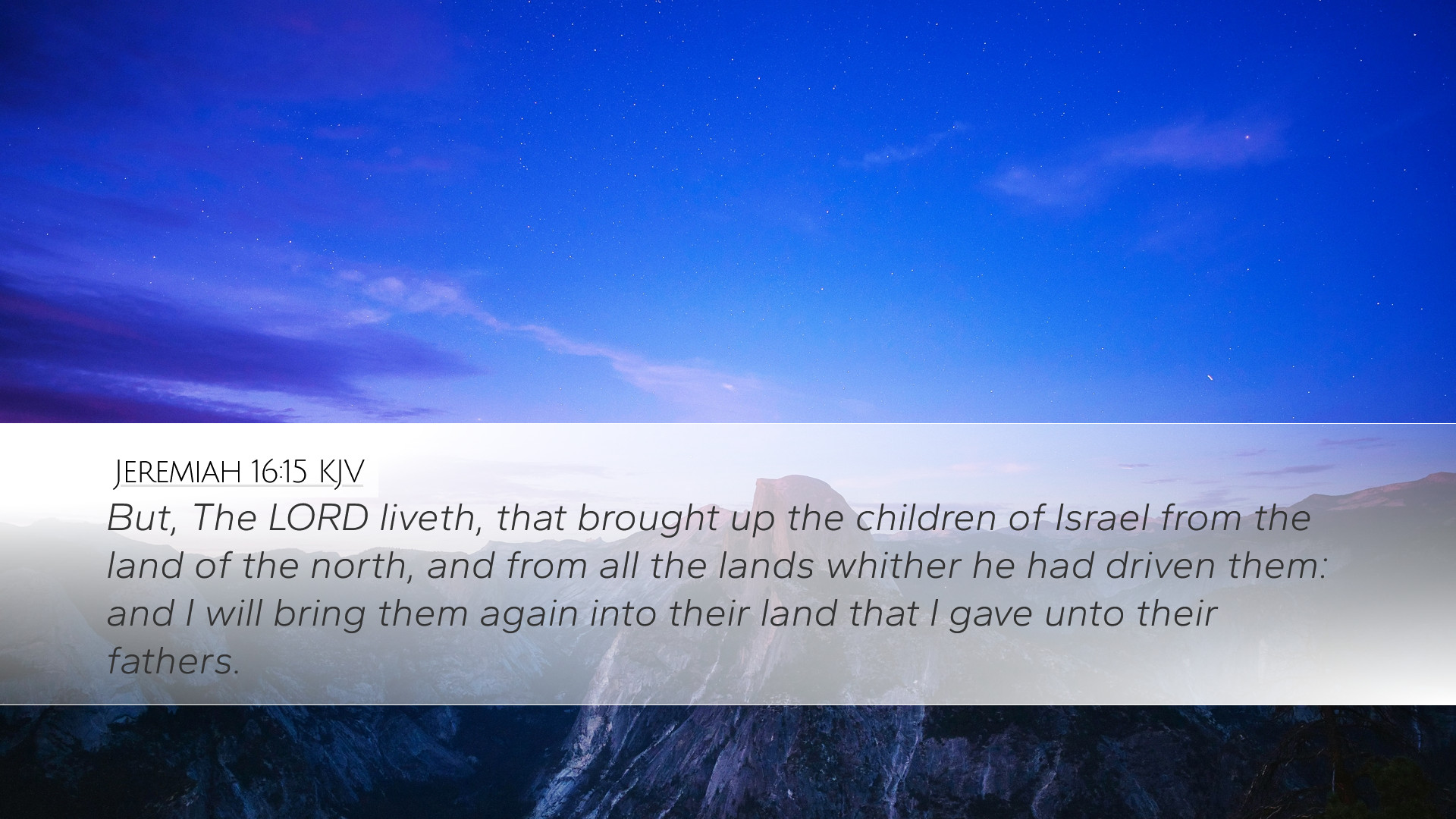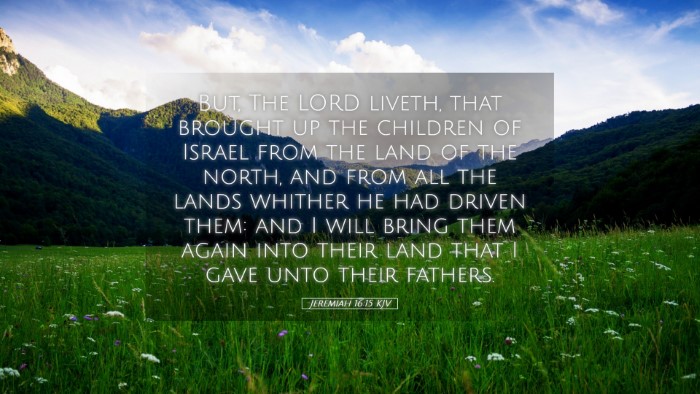Commentary on Jeremiah 16:15
The verse Jeremiah 16:15 reads: "But, The Lord liveth, that brought up the children of Israel from the land of the north, and from all the lands whither he had driven them: and I will bring them again into their land that I gave unto their fathers."
Introduction
This verse comes at a crucial point in the Book of Jeremiah, where the prophet delivers a message of hope amidst judgment. It highlights God's faithfulness in restoring His people and emphasizes His power as the deliverer of Israel.
Contextual Background
Jeremiah prophesied during a tumultuous period in Judah's history, characterized by impending Babylonian captivity. His messages frequently oscillated between themes of judgment and restoration, reflecting God's dual nature of justice and grace.
Analysis of Key Phrases
- The Lord liveth: This declaration serves as a powerful reminder of God's ongoing presence and active involvement in the affairs of His people.
- that brought up the children of Israel: The reference to God's redemptive history reinforces His role as a liberator, connecting the current situation with past divine interventions.
- from the land of the north: This phrase signifies the Babylonian exile, symbolizing both judgment for Israel's disobedience and the hope of future deliverance.
- and from all the lands whither he had driven them: This illustrates the comprehensive nature of God's restoration, indicating that no matter where His people have been scattered, He has the power to gather them back.
- I will bring them again into their land: Here lies the promise of restoration, which is a central theme in prophetic literature, reassuring the faithful remnants of God's unwavering covenant.
Theological Significance
This verse encapsulates the hope of Israel's restoration not just as a physical return to their homeland but also as a spiritual revival. The emphasis on God’s living presence serves as a contrast to the lifeless idols that Israel had turned to during their time of turmoil.
The promise signifies the committed love of God to His covenant, assuring His people that their rebellion and subsequent exile would not culminate in abandonment but rather in another opportunity for redemption.
Public Domain Commentaries Insights
Matthew Henry's Commentary
Henry emphasizes God's remembrance of His covenant with His people. He notes that despite Israel's unfaithfulness, God remains true to His promises, and the phrase "The Lord liveth" forms a basis for enduring hope. He elaborates on the importance of divine deliverance, contrasting it against human fears and anxieties.
Albert Barnes' Notes on the Bible
Barnes highlights the significance of this promise as indicative of God's sovereignty over all nations. He suggests that the mention of "the land of the north" could also signify the broader pagan nations that opposed Israel, showcasing God's power to reclaim His people from any captivity.
Adam Clarke's Commentary
Clarke underscores the prophetic assurance within this text, pointing out the transitional nature of Israel's history. He explains that although they were dispersed as a result of divine judgment, God's promise of restoration not only fulfills a physical necessity but also reflects a spiritual revitalization that is expected in the Messianic age.
Application for Modern Believers
For pastors and church leaders, this verse serves as a foundation for preaching a message of hope and restoration. It can inspire congregations to trust in God's faithfulness and providence, especially in times of distress or uncertainty.
For students and theologians, the text encourages a deeper examination of God’s character—both in judgment and mercy—illustrating the seamless connection between the Old Testament and New Testament themes of redemption.
Believers today can draw comfort from this promise, knowing that God remains actively involved in the world. The repeated promise of restoration is a reminder that, regardless of circumstances, redemption is always within reach through faith in Christ.
Conclusion
In conclusion, Jeremiah 16:15 is a profound reminder of God's unchanging nature and His commitment to His people. The promise of restoration rings through the ages, providing hope not just for ancient Israelites but for all believers who seek solace in God’s enduring love and redemptive power.


